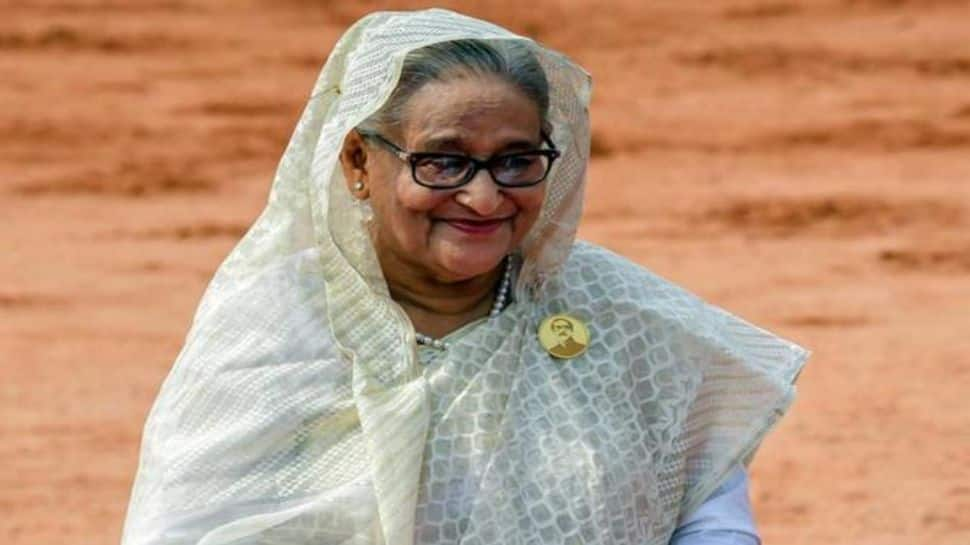Former Bangladesh Prime Minister Sheikh Hasina has been residing in New Delhi, India, since her government’s abrupt collapse on August 5 last year. Her extended stay in India is legally supported by a residence permit, which provides her with long-term security and protection. This arrangement has come under international scrutiny, particularly after Bangladesh’s International Crimes Tribunal sentenced Hasina to death on November 17 for alleged “violent suppression of student protests.” Following the verdict, the Government of Bangladesh formally requested her extradition, but India has neither accepted this request nor indicated any definitive plans regarding her future status.
Hasina’s arrival in India was precipitated by a severe political crisis in Bangladesh. The country was engulfed in widespread student-led protests that rapidly escalated throughout universities and city streets. These demonstrations disrupted normal life: offices were forced to shut down across multiple districts, and state institutions struggled to maintain functionality. The mounting pressure eventually overwhelmed Hasina’s administration, compelling her to resign. Within hours of stepping down, she left her official residence and fled Bangladesh with her sister by helicopter, eventually arriving in Delhi via Agartala.
Following the tribunal’s death sentence verdict, India responded cautiously. Officials in New Delhi acknowledged the decision but refrained from commenting directly on the legal proceedings or extradition. The Ministry of External Affairs (MEA) emphasized India’s continued commitment to peace, democracy, inclusion, and regional stability. Without taking a formal stance on the extradition request, the ministry stated that India would maintain dialogue with all stakeholders involved. This diplomatic balancing act highlights India’s careful approach to managing sensitive cross-border political issues.
Despite Bangladesh’s formal extradition request in December last year and again after the tribunal’s ruling, India has taken no concrete action to extradite Hasina. The situation remains essentially unchanged, with the death sentence not expediting any legal or diplomatic processes in India. This lack of movement underscores India’s discretionary power under the bilateral extradition treaty, which allows it to refuse extradition requests in political cases or where the death penalty is involved. Consequently, Hasina’s legal status in India remains secure and unthreatened.
An important aspect of Hasina’s continued residence in India is her legal documentation and visa status. Bangladesh cancelled her diplomatic passport in December 2024; however, this cancellation did not impact her legal standing in India. India extended her visa on technical grounds in January this year, and this extension effectively serves as an independent residence permit, distinct from a standard visa. This permit grants her the right to remain in India indefinitely, and she has been provided a protected government residence in New Delhi. Security around this residence is stringent, reflecting the sensitive nature of her presence in the country. She has been explicitly informed that she may stay in India for as long as she desires.
While India does not officially grant Hasina political asylum, her situation closely resembles it. The cancellation of her passport removed all typical visa-related concerns, yet India continues to recognize her residency under the special permit. Legal experts note that the extradition treaty between India and Bangladesh specifically permits refusal of extradition in cases with political implications or where capital punishment is involved. India’s handling of Hasina’s case exemplifies its use of diplomatic discretion, carefully balancing legal provisions with geopolitical considerations.
Hasina’s current status hinges on a single pending decision: how India will respond to Bangladesh’s extradition request. Until New Delhi makes a formal determination, she will remain in New Delhi without any clear timeline for her departure or further developments. This uncertainty reflects the complex interplay of international law, bilateral relations, and India’s strategic interests in maintaining regional stability.
In summary, Sheikh Hasina’s extended stay in India is underpinned by a residence permit that legally safeguards her presence despite Bangladesh’s attempts to secure her return. The political turmoil that led to her departure from Bangladesh, coupled with the sensitive nature of the charges against her, has compelled India to adopt a cautious and measured stance. By neither accepting nor rejecting the extradition requests outright, India maintains diplomatic flexibility while prioritizing peace and stability in the region. Her residence in India, supported by government protection and strict security, continues for an indefinite period, pending a final decision by Indian authorities.
For ongoing updates on this and other significant developments in India and the world, follow reliable news sources such as Zee News.

